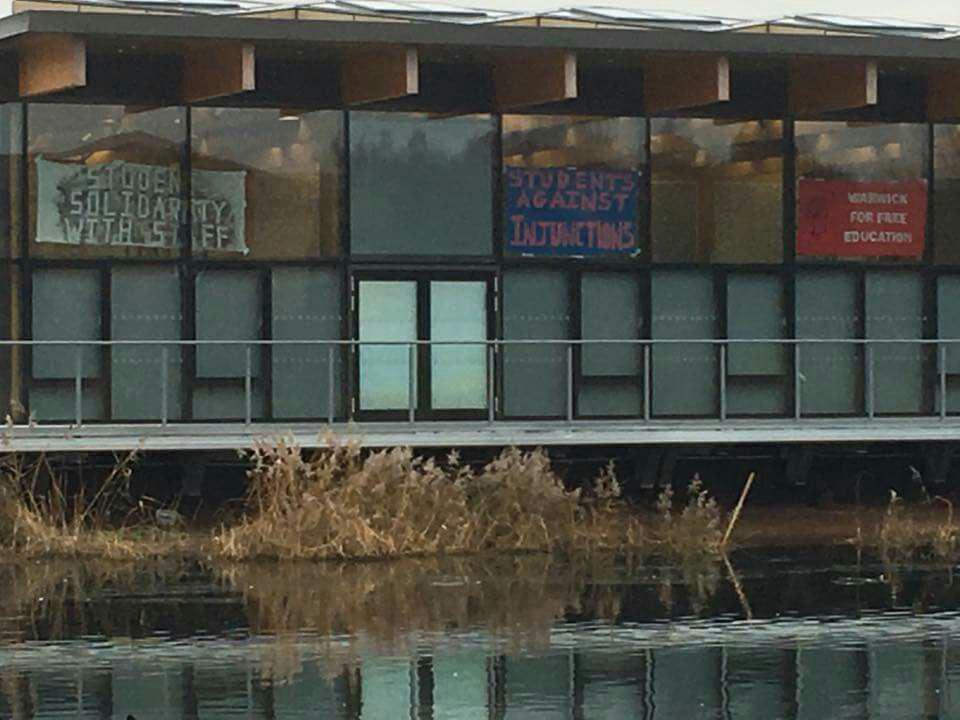Lessons from the Slate
Last month, the University of Warwick rounded off 2016 with an occupation of its new £5.3 million conference building by Warwick for Free Education activists, beginning on December 2 and lasting for 14 days. During this time, the group rallied against the University’s participation in the Teaching Excellence Framework and casualisation of staff contracts, after it was revealed that 68.1% of teaching staff at Warwick were subject to “precarious contracts”. These claims were later denied by the University.
The occupation concluded on December 16 with what Warwick For Free Education termed “key concessions”, including the University’s promise to scrap the injunction against occupation-style protest on campus and a commitment to the representation of hourly-paid teaching staff in the Warwick University and College Union (UCU) negotiation process. Now, nearly a month on from the takeover, what can Warwick students take from its outcomes as we look towards the New Year?
The Slate occupation has solidified Warwick For Free Education’s position as the foremost political force on campus.
Firstly, the Slate occupation has solidified Warwick For Free Education’s position as the foremost political force on campus. Unmatched in the attention they command or the influence they have thus far exercised over University proceedings, their latest action is yet another example of how they are placing Warwick at the heart of the discussion over higher education, attracting coverage from the Huffington Post UK and the National Student.
However, the occupation also exposed further division in campus opinion. Warwick For Free Education has historically attracted equal parts criticism and praise, with some claiming that their aggressive approach is alienating. Responding to the group’s decision to exclude Conservative students from the occupation and its associated events, Warwick student Sophia Bryant commented: “I am concerned about the future of my university too, and I feel it is somewhat discriminatory to say I’m not allowed because my political views clash with yours.” WFFE later removed the blanket ban on Tories, but continued to prohibit cops, security, university management and those endorsing “fascist, racist, sexist, ableist, LGBTQUA+ phobic or Trans Exclusive Radical Feminist views”.
This time, commenters expressing their discontent were not exclusively limited to students, with staff affected by the occupation voicing their concerns on Warwick for Free Education’s Facebook page. Amy Louise Taylor reportedly lost pay as a result of the group’s actions: “You are clearly on the other side of the campus […] and have affected good, honest, hardworking people not the administration”. The University later refused WFFE’s request that they reimburse staff who lost wages as a result of the protest.
Warwick are beginning this pivotal year at the forefront of the wider debate surrounding this sector.
2017 holds several challenges in the higher education sector, with the passing of the Higher Education Bill and the specifics of a post-Brexit landscape for UK universities becoming clear. Warwick are beginning this pivotal year at the forefront of the wider debate surrounding this sector, yet disconnects between on-campus figures remain evident.
Despite these differences, the concessions achieved by Warwick For Free Education are significant, as they represent the ameliorated relationship between student activists, Warwick SU and University management under the leadership of current Vice-Chancellor Stuart Croft, after a period of difficulty during his predecessor, Sir Nigel Thrift’s tenure.
In early 2015, a motion of no confidence in Thrift was passed by Warwick SU, following reported use of excessive force by police during a Senate House occupation on December 3 2014. In March 2015, Thrift was filmed referring to members of Warwick for Free Education as “yobs”, and left his post as Vice-Chancellor in January 2016. The agreements reached as a result of the Slate occupation are evidence of greatly improved communication students and the Vice-Chancellor and a willingness to take student activism into consideration by University management.
The agreements reached as a result of the Slate occupation are evidence of greatly improved communication students and the Vice-Chancellor.
Speaking to the Boar, Warwick For Free Education commented: “It is vitally important for students to be able to protest on issues that have a direct impact on us. Now the legitimacy of that tactic is rightly restored.”
“The success of the Slate occupation should be regarded as a key victory for the student movement at Warwick and beyond. Engagement with student politics can lead to real and concrete changes that improve the University as a whole.”

Comments